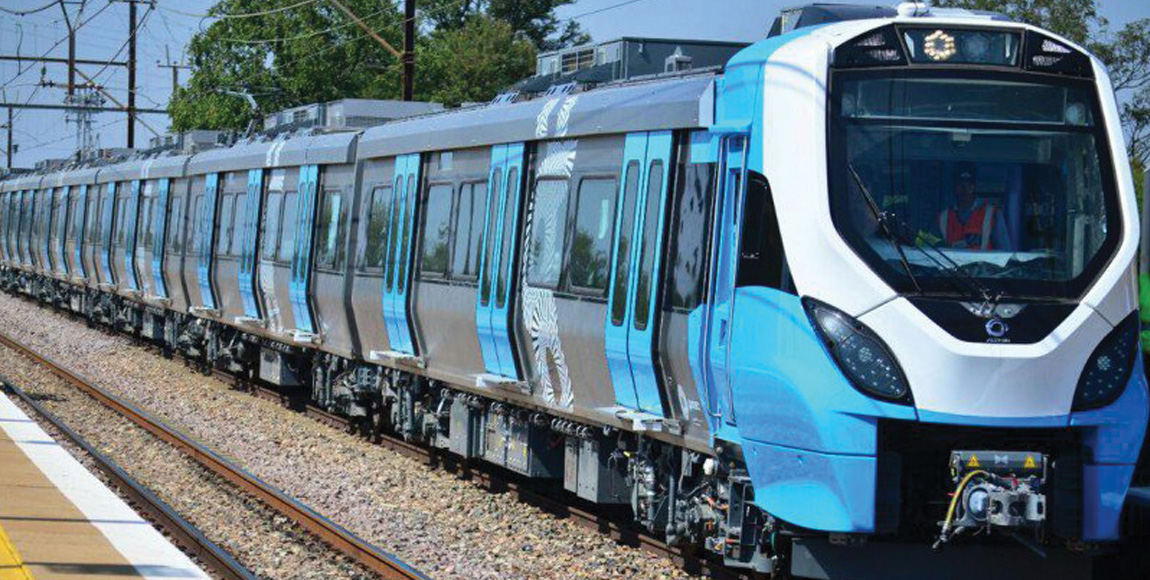Here’s your chance, Gautrain!

Here’s an idea for a prospective doctoral thesis
The latest twist in the saga at the Passenger Rail Agency of South Africa (Prasa) is that during the most recent 12-month financial period, annual passenger levels have fallen from 448 to 370 million (my guess is that it will now be even lower at 340 million), while the subsidy is now over R5 billion.
This means that every day since 2016, 320 more people have switched from electrically powered (rail) to fossil-fuel-powered transport.
It gets worse if we go back to 1982, when the railway carried 707-million passengers. Since then 500 000 people, who could be travelling by rail (supposedly a national objective), are now travelling in oil-burning minibus taxis and cars.
The implosion at Prasa makes a mockery of the planning profession in South Africa. Documents which should be thrown in the dustbin include:
(a) The integrated public transport plans, which for decades have routinely assumed that the number of people using rail transport will continue to grow at one percent a year;
(b) The financial plans that fail to measure the consequences for workers, who now have to pay higher taxi fares, or buy cars; and
(c) The energy plan, which fails to quantify the extra energy that will be required when rail transport collapses.
Is anyone measuring the hammer blow to our balance of payments, since a lot of money goes out of the country to pay for imported fuel, rubber and spares? Are we really serious about becoming a fossil-fuel-free South Africa? I don’t think so.
Fortunately, at least two people are on the case. The first is DA spokesman Manny de Freitas, who “will be asking the minister questions about what he plans to do”.
Second, is the interim chairperson of Prasa, Khanyisile Kweyama, who plans to focus on training new drivers, appointing qualified executives (whatever that may mean) and improving passenger safety on trains. She hopes that the new coaches (now being built) will reduce overcrowding and thereby reduce crime.
While I have some (temporary) sympathy for Kweyama, who is new to the job, the DA representatives on various councils, portfolio committees and in parliament have sat in a collective coma for decades now, and it needs to take a lot of the blame for the current mess. If any political party wants to govern the country one day, at least it should have some ideas of its own.
But wait, here comes the cavalry – in the form of the Gautrain, whose promoters have made a science of reinforcing their bases in legal concrete. The latest of the many Acts of Parliament giving legitimacy to this questionable scheme, is known as the Gautrain Management Agency (GMA) Amendment Act, no 2 of 2017.
Section 1(f) gives the GMA powers to undertake any “project for the planning, design, construction, financing, operation and maintenance of any … rail transit system in the province”.
Since Gauteng makes up about 40 percent of Prasa’s national operations, my advice to Kweyama would be to go over and have a chat with the people at the Gautrain, and see whether they might be willing to take 40 percent of your problems off your hands!
My advice to the DA would be – start working for your salaries. Get your coalition councils to start running bus services between Johannesburg and Tshwane. Ask your sleepy members of the provincial transport portfolio committee to find out from the province what happened to the 25-year integrated transport plan for Gauteng.
Some short-term suggestions for the government – flood the stations with police and soldiers. Offer far more substantial rewards for cable theft and arson convictions. Put all the subsidised public-transport operators under one authority. Pay 50 percent of that board’s fees in the form of transport vouchers. (Ms Kweyama, that’s a quick way to sift out “qualified” people.)
I’d like to hear from our dozy business schools and universities why every loss-making public transport company needs its own board of directors. Here’s a long-winded topic for a prospective doctoral thesis in Business Administration:
How we managed to mix oil and water – by allowing a company (Gautrain) that loses R90 on each customer, to take over a business in the same industry (Prasa) that loses R13 on each customer.
Any offers from academics to promote that thesis?
Published by
Focus on Transport
focusmagsa




